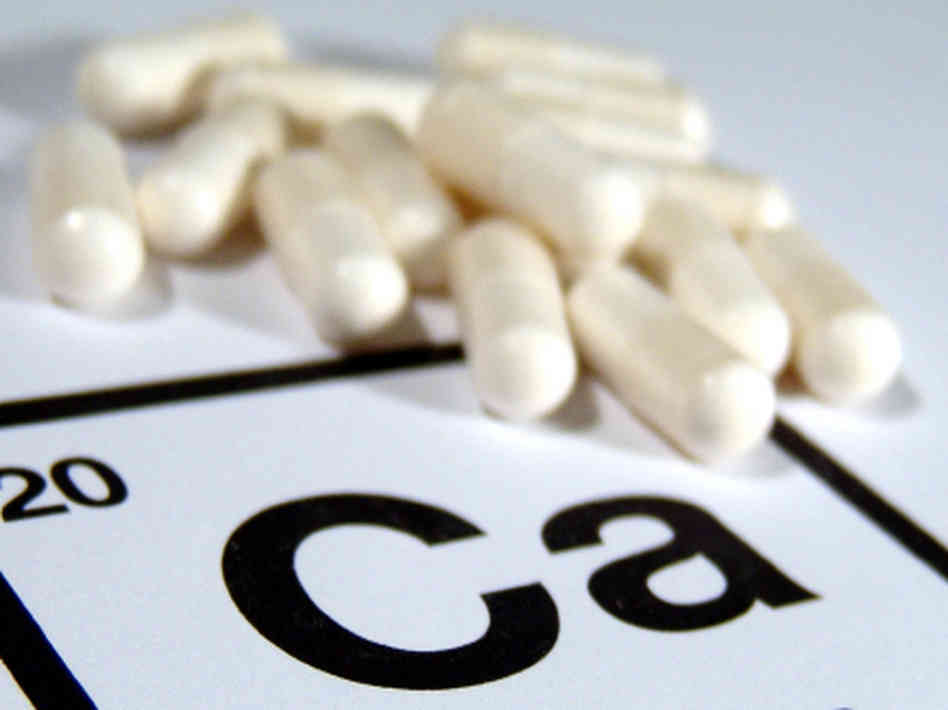 Navigating through a supplement regime can be tricky. We get that.
Navigating through a supplement regime can be tricky. We get that.
But making the right supplement choices can truly make or break your health and fitness plans. Here’s the knowledge you need to make the right choices.
Modern day advances in medicine are nothing short of miraculous. What was once a deathly plague that wiped out entire civilizations is now treated effectively and easily with today’s antibiotics. It’s no surprise that these advances have led to an entire market for supplements.
Sadly, some manufacturers capitalize on the market rather than what’s actually good for people. FDA regulations are simply not enough when it comes to supplements. While the FDA requires prescription drugs to pass critical safety and effectiveness testing, they don’t subject supplements to this standard.
Because of this, you have to be informed. And, you’ve come to the right place. Some supplements are better than others. Supplements are sometimes synthesized and riddled with added botanicals and multivitamins rather than standing alone as pure and natural ingredient pills. Given these factors and the potential effects on your health, you should take steps before deciding to take supplements.
First Examine Your Diet
Supplements are just that – supplemental. They aren’t meant to replace anything in your diet. They are only meant to supplement your diet with any extras you may need.
If you’re a vegetarian for example, you may find that you need B12 vitamins. If you are trying to build your muscle without eating five steaks a day, you may be looking to take whey protein.
It’s crucial to take a clear and honest look at your average consumptions of all the necessary food groups and nutrients your body needs. Then you must determine what you can do naturally to enhance your needs.
Following that, if you still feel you’re lacking, then consider supplement options.
Do Your Research On Supplements…
There’s a plethora of info on the Internet. Especially when online shopping, you can look up everything you want to know about a particular supplement before you buy it. You can see reviews and do your research as you stumble upon new things.
That’s the Internet advantage. Sometimes when you’re shopping in a store, you can feel pressured to believe what the sales rep is telling you, without having the chance to do your own comparisons and homework. Buying online changes things.
And, that might mean you should go back and do some research on the best and safest options.
To aid your research, you may want to consult Consumerlab.com for a range of expert reviews. PubMed.gov is also a great resource for learning how actual studies proved or disproved the effectiveness of supplements. A study can also be a great way to determine whether or not a supplement is worth taking if you’re on the fence.
You Must Read The Labels And Consider An Expert Consult
As with anything you put in your body, you should always read the ingredients. The safest bet is to purchase supplements with the USP Verified logo. This logo requires the product to meet US Pharmacopeia standards. In Canada, look for a Natural Product Number (NPN) or a Drug Identification Number (DIN) to ensure the product meets Health Canada standards.
But, this may not always be applicable. Popular bodybuilding supplements like whey protein aren’t tested for USP approval. In that case, you can’t really shop for a regulated product. That’s where doing your own research is vital. This may be where reading studies will help you in determining the effects of such supplements.
. Because of that, you don’t want to begin regularly taking a supplement without knowing what it does.
Following this, you’ll likely want to consult an expert. While you can read reviews and studies, if you aren’t a chemist, then you’ll need an outside expert opinion on the risks associated with the products you’re interested in taking.Your doctor is a great place to start and can also recommend whom else you should consult.
Your pharmacist is another great source of info. They’ve studied the chemistry behind creating these pills and can help you understand how they’ll positively or negatively affect your body and what risks there may be. Your age and weight could also be a determining factor and that’s where a consult can also help.
Be Smart When Shopping For Supplements…
Purchase your supplements from a known source with proven industry knowledge. Try to avoid buying supplements made in China. Why? Their health regulations are much lighter than the U.S. and will be subject to even less testing than they are here.
Most health and nutrition stores will keep up-to-date info on the products and are potentially faster to act on recalled items.
Bargain hunting for supplements can also lead to potential risks. A University of Minnesota analysis showed that more expensive supplements were more likely to have a consistent recommended dosage with established standards.
This is an incredibly important thing to note as overdosing can lead to permanently harmful effects.

10 Supplements To Consider
Remember: The miracle pill is a myth. While we have made incredible strides to improving the longevity and healthiness of life in modern times, we’ve yet to create a miracle pill to solve entire ailments. As of today, supplements are just that – supplements. They can’t be your go-to resources.
With that in mind, now that you’ve been briefed on how to be a smart shopper, here are some supplements to consider trying. Of course, consider what you need and what you want.
And, do your research!
1. Whey Protein
As one of the two proteins found in milk, whey is the water-soluble part. There have actually been studies conducted on the use of whey protein showing that it can act as a significant aid in strength training.
For example, Baylor University’s study found that taking it before and after exercising garnered higher increases in muscle strength. If you’re looking to build muscle and you are focused on strength training, then you may want to consider whey protein.
2. Fish Oil
If you don’t eat salmon or anchovies (fatty/oily fish) at least weekly, you may want to consider taking fish oil supplements. These supplements provide the healthy omega-3 fatty acids EPA and DHA found in oily fish.
Our bodies don’t produce these fatty acids normally and they’re essential to maintaining healthy cell membranes and overall function. They have also been shown to be beneficial for your heart.
3. Vitamin D
Many Americans don’t actually get enough sunlight exposure and our bodies need that nutrient. Very few foods actually provide significant vitamin D and if you aren’t getting enough sunlight, then you may need to consider taking vitamin D supplements.
Ask your doctor for a simple blood test to determine your vitamin D levels and whether or not you should take supplements to aid your body. This essential nutrient is instrumental in maintaining a healthy immune system and is also highly beneficial to your muscles and bones.
4. Conjugated Linoleic Acid (CLA)
CLA is naturally found in dairy and beef. But, if you avoid either or both of those, then you may want to consider taking CLA supplements. Why? It can’t be produced naturally in the human body, so you’ll want to be sure you’re finding ways to consume it.
Also, in a study conducted by the University of Wisconsin-Madison, CLA was shown to significantly help reduce body fat. Mice that were fed a CLA-supplemented diet displayed 57% lower body fat than mice that were not. So if you’re dieting, you may also want to consider adding to your regimen CLA supplements.
5. Casein Protein
This protein has a remarkable ability to outlast other proteins. Researchers in the Netherlands showed that taking casein created a higher metabolic rate while sleeping.
Researchers in Massachusetts concluded that casein doubled the strength results of whey. If you’re an athlete looking to build muscle, you might want to consider whey or casein. Better yet, consider a combo of the two.
6. Calcium
We’ve all heard the slogan calcium helps build strong bones for what seems like forever. And, it’s true! Calcium is critical for maintaining healthy bones. Research also indicates that calcium encourages your body to burn fat instead of storing it. This can result in the prevention of weight gain.
Unfortunately, some may find that as they age, they suffer from indigestion when drinking milk. This can cause a stop in your calcium intake and you may want to consider taking supplements. As mentioned before, the first step is to examine your diet! If you think you’re not getting enough, a dietitian is probably best suited to help you decide.
7. Resveratrol
This antioxidant found in red grape skins, red grape juice and red wine, can reduce inflammation. It can also benefit the heart and circulatory system. If that’s not enough, it can lessen muscle breakdown and oxidative stress, and protect against heart attacks and strokes. Unless you eat buckets of red grapes, you should at least consider this extra boost for your body.

8. Multivitamin
Multivitamins are the closest modern medicine has come to a daily cover-all supplement. Of course, you can’t rely on multivitamins to provide all of your nutrient needs. They act as an aid to cover the gaps you will naturally have.
It can be difficult to hit the recommended daily dosage for every little thing. Therefore, to help you along the way, multivitamins can be great fillers for the bits you do miss. Don’t forget: With these, you definitely want to look for the USP seal of approval.
9. Women Should Consider Iron
Many women (sometimes as they age and sometimes during their entire life) suffer from low iron levels. Often overlooked, many studies have shown that low iron levels actually affect the cognitive functions of the brain.
When given iron supplements, young females showed increased intelligence levels. They actually scored higher on exams. In this way, iron can directly affect your intelligence level. It should be noted that these were non-anemic females, but they had low iron levels. So you may want to have your blood tested and speak with a doctor that’s actually familiar with this line of research to determine if iron supplements can help you.
10. Men Should Consider Boron
Vital for improving testosterone levels, boron, like iron, can be an essential part of cognitive functions in the brain. Taking boron can improve thinking skills and muscle coordination.
Research has also found that increased dietary boron intake potentially reduced the risk of prostate cancer and stats show that about one in every seven men will be diagnosed with prostate cancer during his lifetime. You should definitely consult your doctor on this one. But, as you reach middle age it may be something to start thinking about taking as a dietary supplement.
Conclusion
Taking supplements should not be something you decide to do on a whim. They can greatly affect your body. Because of that, you need to be sure about what you’re taking. The benefits are vital. But, you also want to know what to expect and the potential risks.
Remember to look at your diet. Do your research and read the labels. Above all else, be a smart shopper and consider an expert consult. Supplements are meant to be aids. There isn’t a magic pill to remove your greatest health concerns. But, taking supplements can greatly help you by providing aid in areas your body is lacking.
So take some time to think about what you need. With just a bit of research, you may find a supplement that’s right for you!
– By Alyssa Bright
Latest posts by Terry M (see all)
- Garage Gyms - Aug 1, 2018
- Kettlebells – Why They Should Be Added To Your Routine. - Jul 24, 2018
- Weight Belts: What Are They Really For? - May 31, 2018











A very good general information you got there. Thank you for sharing your thoughts this will really help us out a lot.